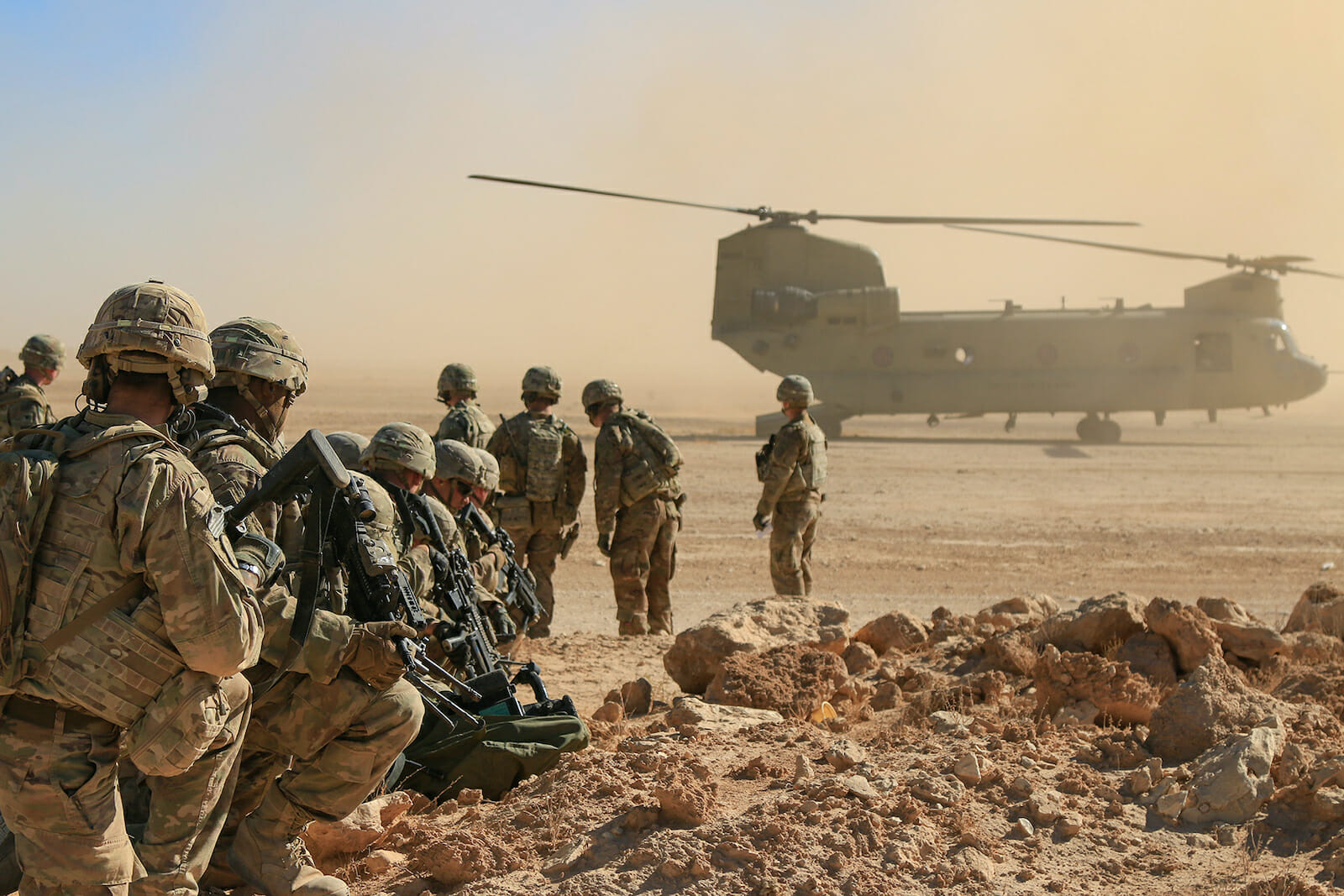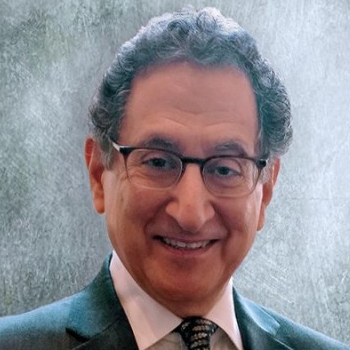
Biden vs Trump – How to Best Secure U.S. Interests in the Middle East?
Experts on U.S. Middle East policy point to substantive and stylistic differences between the two candidates as to what is at stake in the region, and how America will define its role in the coming years. While there is no lack of recommendations as to what American interests are and why and how we should move proactively to secure those interests, there is a lack of consensus about America’s priorities and how to achieve them.
So what are these issues worth fighting for and how relevant are they to both parties? On the macro-level in the MENA region, previously it was simple – Israel and oil, with a secondary nod to trade and arms sales. This is no longer the case. Trump has put Israel on the road to control over its future by pressuring Iran/Hezbollah, continuing bilateral defense arrangements that enhance its qualitative edge, sealing normalization relations with several Arab countries, and ensuring that the UN Security Council will never pass another resolution challenging Israel’s worldview.
When it comes to oil, the U.S. is a more dangerous competitor than Russia. It dominates global oil markets as prices inch up, and Saudi Arabia has found itself outmaneuvered as the U.S. can affect supplies to Asian markets by increasing its exports. Even in arms sales and commerce, the U.S. finds itself in tough competition with Russia, China, and a host of regional producers from Turkey and France to the UK, and neither candidate seems to care much about trade as an election issue.
These priorities will continue for a Trump administration as well as the continued drawdown of U.S. forces in the region and leveraging influence on additional Arab countries to normalize relations with Israel. Iran can expect continued pressure and encirclement via Israel’s growing ties with the Gulf States, and sanctions will be levied on its partners in Iraq, Syria, and Lebanon to increase efforts to promote compliance with international norms.
From an American perspective, there is a long-running controversy about what best serves our security interests. A recent article in Defense Priorities, made the case for reducing our military footprint saying that the $65 to 70 billion spent annually to maintain forces there is money misspent as “nothing about the Middle East warrants the U.S. investment over the past 30 years.” It believes that a military presence will not secure our interests there. “American efforts to manage the Middle East make nothing about oil, Israel, or terrorism better. The United States would be better off withdrawing all forward-deployed troops from the region, while maintaining access agreements for naval ports with the consent of host countries.”
Although this partially echoes Trump’s policies, it is not too far off from the Biden perspective that wants a minimal U.S. presence, heightened diplomacy in Yemen, Syria, Iraq, and Iran to reduce conflict and promote stability, and greater humanitarian relief and support for civil society rather than regimes. His policies will very much reflect what he and his team have learned from their time in the White House, and hopefully what he has learned in his almost 50 years of being in Washington, DC, including more consistent implementation of policy, transparent outreach to allies in Europe to achieve common interests, and shoring up friendly regimes in North Africa, Jordan, and Lebanon.

In a much-quoted review of poll results in an Arab News/YouGov poll conducted in 18 Middle East and Africa (MENA) countries, nearly half the respondents believe neither candidate in the upcoming U.S. election will necessarily be good for the region.
“Of the rest, 40% said Democratic Party candidate Joe Biden would be better for the region while 12% said the same thing about incumbent President Donald Trump. But a key takeaway of the poll is that if Biden, who served as vice president to Barack Obama until 2017, wins the White House race, he would be well advised to shed the Obama administration baggage.”
More explicitly, it said that “When asked about policies implemented in the Middle East under the Obama administration, the most popular response (53%) was that the Democratic president left the region worse off, with another 58% saying Biden should distance himself from Obama-era policies.”
Al-Monitor also looked at the polling data and concluded that “Whoever wins the election, Iran remains the most critical U.S. security challenge in the Middle East, not only for its potential to develop a nuclear weapon, but because of its adversarial policies, per U.S. interests and allies, in Iraq, Syria, Lebanon, and throughout the Middle East.”
So has the Trump administration really achieved U.S. interests in the region? In Trump’s transactional view, international alliances, a globalized economy, and promoting democracy and human rights have not secured stability or prosperity for the U.S. so why continue with policies that do not serve U.S. vital interests? He would continue to prefer to leave the region to its own devices and support leaders with similar views opposing limits to executive power and privilege.
If one supports Israel’s security, a hard line on Iran’s dysfunctional role in the region and beyond, pro-arms sales as a tie that binds us to our friends, and ending what seem to be “endless wars” that make no sense to many American voters, then Biden’s emphasis on diplomacy, rule of law, civil society, and human rights only promise to continue failed policies.
A second Trump term will further refrain from direct action in places like Yemen, Libya, Jordan, Morocco, Tunisia, Algeria, and Egypt, focusing on “what’s the benefit” as the guiding principle. How the State Department will fare is another open-ended question as it is the last refuge for policies related to North Africa, Lebanon, and Jordan.
This will be a challenge for a Biden administration – how and where to allocate U.S. diplomatic and security assets to backstop U.S. interests. It will call for a recalibration of criteria for determining security, diplomatic, and humanitarian ties. Given its stated priorities, there could possibly be greater support for civil society and human rights in North Africa and the Levant while avoiding destabilizing actions in Syria, Egypt, and Libya, which are countries where “lessons learned” will hopefully guide policymakers. The other ingredient to be considered by a Biden administration is how the countries in the region have changed in the past four years and how that affects foreign policy options. The most obvious example is extending the Abraham Accords for normalized Arab-Israel relations to additional countries while hopefully leveraging Israel to draw down its settlement activities and give more than lip service to Palestinian rights.
It is important to note that the respondents in the Arab News/YouGov survey mentioned empowering Arab youth and solving the Arab-Israeli conflict as their top two responses to “wish list of U.S. priorities in the Arab world.” This is a challenge to both candidates: helping remold Arab economies to create meaningful job opportunities, and ensuring that Palestinian identity does not become another victim of poor leadership on both sides of that conflict.
While there are many other issues on which to deep dive differences between the candidates, the key variable that has been missing from the Trump side is attention to the voice of the people when it confronts his autocratic cronies in the region. And for the Biden camp, being alert to the security as well as the critical need for reforms in governance and economic development will pose a challenge to prioritizing resources and commitments.

